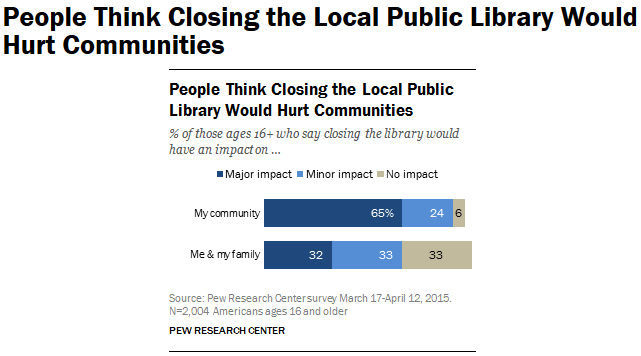Jessica
Because I’ve known all of this for years and years, I told my now-husband, “If you do get me an engagement ring of any sort, I will not marry you.” And I meant it. You know what he got me instead? Sand (long story), and I loved the thought behind it more than any other rock.
We will be celebrating our 10-year anniversary in about a month, and I’m still glad that he listened to me, knowing me well enough that his friends’ admonitions that “She’s just saying that! All women want a diamond ring!” fell on deaf ears. Some women don’t buy into “tradition” simply for tradition’s sake, especially when the reason behind a so-called tradition is simply a bunch of dollar signs. I guess Adam was wrong about one thing: some men do get out of buying a worthless ring, because their girlfriends know the score.
Over the past week, I finished my statements and supporting evidence for Competencies A, B, and C for my MLIS Plan B (ePortfolio). In my mind Competencies A and C are inexorably linked, because two of the core tenets of information professionals are the freedom of information and the right of access to all. I cannot imagine how one could be a close-minded information professional any more than I could believe a puny, 50-pound wrestler taking down The Hulk.
I keep thinking about why I am so drawn to information science, and I know part of it is the atmosphere I’ve always felt at libraries. Even though I don’t see myself working in a typical library environment (why, hello there, Competency B!), I still enjoy the open, welcome feeling that permeates most libraries. Libraries should be and often are public centers and community gathering spaces. The health of a library in a given community can be a signal to the outside world, a beacon of the health of the community itself. Duluthians know what I’m talking about: many of us rallied to support our libraries several years ago when hours and services were being cut in the face of city budget issues. We aren’t a complacent city these days, content to let the city run to ruin around us. No, we want vibrancy and growth, so we focus on these factors and keep pushing forward.
I am a first-generation college graduate, from both sides of my family. I will also be the first on both sides to obtain a master’s degree. Books and libraries have been a major component of learning to make my way in an unfamiliar world. I know I can usually find information on something I don’t understand or a topic I want to know more about if I only research the subject. This Atlantic article about San Bernardino’s library hit home for me, because my research into the digital divide, particularly based on socioeconomic status, reaffirms what it says:
(I also visited the Norman F. Feldheym Central Library in downtown San Bernardino. I have found during our travels that libraries, as public institutions that serve the people, always offer a sense of the needs and wants of a town.
. . .
The library copes by grabbing a strong lifeline braided together by generous funders, creative grant-seeking, and an army of dedicated volunteers.
. . .
I realized that I was in an American city populated by all kinds of people, and that the public library is an American institution that is truly “Open to All,” as the promise engraved above the main door of the Columbus Metropolitan Library in Ohio reads. (via)
And it’s not about the books, but the services. Libraries offer more than the ability to check out a few books. Where else can you go to freely use computers and obtain broadband access? The conclusion of the study found here shows that libraries are often more important to a community than most people realize:
Public access computers in libraries are frequently used by patrons who rely on them most to search for jobs and to access government services online. This underscores the continued relevance of libraries in the digital age. By providing public access computers, public libraries act as a conduit in strengthening the community by meeting the information needs of their residents such as connecting under-privileged residents to online applications, learning opportunities and potential employment. Our findings indicate that public computing facilities are indeed helping to meet the needs of marginalized citizens and the BTOP-funded improvements of these facilities are likely to help narrow the digital divides among demographic groups in this respect. An examination of psychological barriers to the usage of library computers addresses secondary digital divides related to effective use of public computers once basic access is provided. From the findings, creating opportunities to cultivate a habit of using the public access computers, improving attitudes and developing a stronger sense of self-efficacy will encourage library patrons to put the computers to better use in their lives. Notably, flexibility in scheduling depending on need rather than short, fixed time appointments that assure wide access but may frustrate mastery of important tasks should be considered.
(DeMaagd, K., Chew, H. E., Huang, G., Khan, M. L., Sreenivasan, A., LaRose, R. (2013). The use of public computing facilities by library patrons: demography, motivations, and barriers. Government Information Quarterly, 30, 110-118. doi:http://dx.doi.org/10.1016/j.giq.2012.07.009)
The digital divide has been defined in two major ways over the years: access to technology and knowledge of and ability to use technology. Public libraries and expanding access to broadband services have helped create more access to technology and services; however, we have not yet reached the end of the primary digital divide (access to technology). The secondary digital divide (use of technology) is becoming more disparate as separate entities put policies in place that have overly broad consequences to all users and as users show that there are bigger differences in how various demographics use and access online services. This will only become a more pressing issue as more services move toward online-only or online-preferred access. Health service providers and government offices are two of the most concerning, as the divide will only increase as “one size fits all” policy-making becomes de rigueur instead of allowing for separate policies for more narrowly defined groups (e.g., by location or demographic).
Who can we look to for help to overcome these divides? Librarians and public libraries, of course. Communities need to be willing to fight for their libraries to ensure that all community members have the ability to learn and grow. Libraries can be the canary in the coal mine for a community, so if your library is threatened, it is probably a sign that your community is also in dire need of support and community building.
Music to get me going today. Mondays. Yuck.
Enjoy a little bit of my morning kick in the pants to keep me moving along!
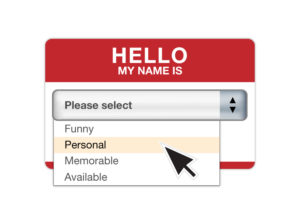 I’m with Dame Jenni a lot of the time. I sometimes think about my previous name (I’m a proponent of getting rid of the term “maiden name”) with fondness, reveling in its simplicity and ease of letting others know who I was: Ms. Gilbert, or Ms. G to some of the students I taught. At the beginning, I didn’t really like the shortened designation, because it reminded me of a terrible “dorm mom” I had in college, but I began to like it more when I realized that the students who started it and used it were doing so out of respect and connection, not diminishment.
I’m with Dame Jenni a lot of the time. I sometimes think about my previous name (I’m a proponent of getting rid of the term “maiden name”) with fondness, reveling in its simplicity and ease of letting others know who I was: Ms. Gilbert, or Ms. G to some of the students I taught. At the beginning, I didn’t really like the shortened designation, because it reminded me of a terrible “dorm mom” I had in college, but I began to like it more when I realized that the students who started it and used it were doing so out of respect and connection, not diminishment.
When I was working in a school more recently, I was Mrs. or Ms. Gilbert Redman (I’m not too picky with the designator, but I am also a proponent of getting rid of Miss and Mrs. and just keeping Ms. for women to make it less ridiculous for us when men never deal with such nonsense for a simple greeting). Several years ago, a couple of students in my workplace (including one who was the daughter of a friend of mine) started calling me Mrs. Grrrr. Yes, draw that out into a growl of sorts. I actually preferred that, because it was short and simple. It returned me to the Ms. G days. (My husband actually had the student who started it a few years later, and she also called him Mr. Grrrr sometimes, which was freaking awesome!)
In the end of Dame Jenni’s article, she talks about wishing she hadn’t started the whole process of changing her name and changing her name. I go through stages of wishing the same. The reason isn’t what you think, though. It’s not because I really just wanted to keep my previous name, because I did that–in a roundabout way. I am still a Gilbert, every day.
No, the reason is more about simplicity. I am tired of receiving mail for or being called Jessica Redman. I am tired of even family members “forgetting” that Neal and I have a different last name and just calling us “Mr. and Mrs. Neal Redman.” I’m sure it’s less of a problem for Neal, because he at least once had the name he is being called by. I have never in my entire life been Jessica Redman.
No, my problem is that my own family name, the one I fought to keep, is often wiped out completely in favor of my husband’s former name, a name he no longer has and a surname I’ve never owned. It doesn’t sound as strange to him, because it was his at one point, but I don’t identify with it at all. It’s neither who I was nor who I am. I am still fighting to keep that part of who I am to this day.
I know I shouldn’t let it bother me, but it is frustrating that people put their expectations on you over and over. Even after you explain to them several times that your last name is this, they insist that it is (or, rather, should be) that. Let me be forthright: it’s rude; it’s wrong–trying to wipe out someone’s personal identity to push your own agenda of what you think should be.
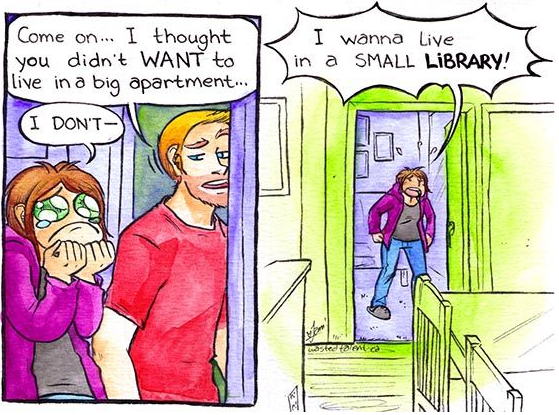
Check out the full, four-panel comic by clicking on the image.
Angela Melick rocks! She is the one who created my avatar.
For the past few years, I’ve gone back and forth about what to do with my home library. Neal and I are both addicted to books, so we have rather a lot of books all over our house. A few years ago, I was thinking about cataloging and how to best go about keeping a record of what we have and anything we might want to remember about our library of books. I discovered LibraryThing and was tempted several times over the years, but didn’t take the leap. (We would have to do a membership to catalog all of our books.)
Well, sometimes it’s the little things that make you pull the trigger, and this article jump started my desire to get going on our library again. In the past, I’ve created my own databases for music and books, but I give up part of the way through cataloging, because I have to hand enter everything in. I’ve researched a bunch of scanners in the past, but I kept stopping myself from buying one due to just wanting to save the money. After all, I can hand enter the ISBN for several hundred books, right? How hard could it be?
Okay, so yeah, I read the article and decided enough was enough. I wasn’t going to procrastinate any longer. Well, I wasn’t going to procrastinate on preparing to catalog my books any longer. (I am pretty sure I was procrastinating on finishing up the build on my website for my Plan B, however.) I went to LibraryThing and purchased the CueCat scanner to get started. A few days later, it showed up and I set to work scanning all of the books right in front of me. (For those who don’t know me, that means the books on my end table and on the TV stand, which came to about 50 books. For those that do know me, no, that doesn’t mean I started on the many bookcases in our living room yet.)
So far, so good. Even most of our obscure books have been found, so I think I’ve only hand-keyed two books into the system. (Older books that don’t have ISBN bar codes on them.) I know I will find more as we go along, but it has been fun so far. Child-me was pretty excited to use a scanner again. In fact, I’m pretty sure that using a scanner will never get old: I loved checking out books at the library where I worked in college and I still love using the self-checkout at the library and the grocery store.
This is pretty addictive. I need to keep going on my job and semester work, so I just have to remember that this is a project I can take my time with (even if I want to jump in and catalog my entire library in one day).
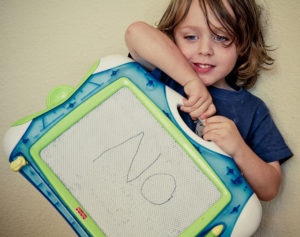
This article explains how I feel pretty much perfectly, and I’m glad it was written. The question “Why don’t you want to have children?” has never felt right to me. I don’t have an easy answer. Sure, I’ve struggled to come up with reasons that might make others understand. I’ve even asked others to explain why they chose to have children, and none could give me an answer beyond “That’s what you do!” or “I just wanted them!”
Yet my response of “I just don’t want them” or “I just never have” isn’t adequate to others as an explanation of not wanting children. I’ve written about this before, and it’s not something that I hide. I don’t have children, because I don’t want to have children. It’s not something that I thought much about until I became old enough to have children and people heard that I didn’t want them. I thought I had to have some kind of “good” excuse for it, but there really isn’t one beyond the fact that I’ve never wanted them. I don’t have a burden of keeping up the human race (we’re not exactly hurting for humans these days), so why the need to justify something that I’ve basically felt my entire life?
Liška said it much more succinctly than I ever could, so I’ll leave her to it here:
I never needed reasons, and those of you who “chose” to be childfree don’t need them either. What thankfully isn’t artificial, and what will never be, is that I am who I am—a NotMom since I was nascent. Childfree by a choice I never actually made.
I was born this way.
Every time Joss Jackson comes out with a new book, she is kind enough to run a Virtual Book Tour for those of us who don’t live near her in Georgia. This means that she goes to a local (to her), indie bookstore and signs a ton of books that all of us wonderful internet people have ordered.
How can you participate in the VBT and get one for yourself? Just go here and check it out.
Wait, what? You want to know why you should get this book? Well, Joshilyn Jackson wrote it, so that’s pretty much the only reason you need.
The main character of The Opposite of Everyone is Paula Vauss, and if you’ve read Someone Else’s Love Story, then you’ll want to hear more from Paula. If you haven’t read SELS, then read my GoodReads review of it right here:
I never felt comfortable while reading this book until the very end. This is fitting; this is right. None of the characters are fully comfortable with each other (or, let’s be honest, even with themselves) either. And that’s perfectly okay, because this book isn’t about fitting in, but about finding the right fit. Shandi Pierce is struggling through figuring out what has even happened in her own life, forget about trying to figure out what’s going on in someone else’s. Her parents are long-divorced but still in a tug of war that has long stretched Shandi out of shape, so much so that the addition of her son Natty just seems like another piece of rope to add to the war. She isn’t even sure whom or what to believe in, let alone what’s going on.
Destiny doesn’t mean the same thing to everyone, and in a novel that is about that ever-perched thing with feathers, it certainly doesn’t mean what everyone seems to think it does. Hope is more than destiny, and sometimes it means jumping and finding out where you fall. And sometimes, again, where you fall isn’t remotely close to where you were aiming.
I just wasn’t sure whom to root for in this story. The person you want to root for, you just aren’t sure about, and the person you aren’t sure about, you kind of wonder if you should be rooting for instead. And the big epiphany you just had? We learn that sometimes, just sometimes, that epiphany isn’t the one you should be having, but it’s so overwhelmingly breathtaking that one could ruminate on it for almost too long without realizing the real epiphany is about to hit you in the face.
And then it all hits you and you realize that Joshilyn Jackson has done it again. And you love her and hate her all at the same time, but mostly you just wish the book wouldn’t end.
You don’t have to read SELS before picking up TOoE, but I encourage you to do a Joss-binge and read all of her books before the newest one comes out in February. You may end up shaking your fist at Joss time and again, but you’ll never regret taking the time to read one of her books. SELS has been my favorite so far, but I’m pretty sure that TOoE is either going to be a close second or just replace SELS all together–and I can’t wait to find out!
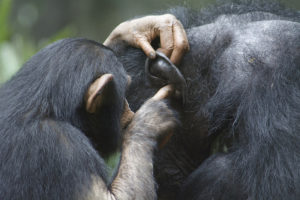
I hope this is the last year that I start the new year with ear problems. I started having ear pain a few days ago and it finally got so bad I went into the walk-in clinic this afternoon. Yep, ear infection. At least this time it’s just external, but it hurts worse than anything else regarding my ears. (Actually, nothing else has ever made my ears hurt, so that’s not saying much, I guess. It does hurt like crazy, though, and I’d prefer to never have one again.) Here’s hoping that starting off the year in poor health means I’ll get healthier throughout the year, even if that didn’t work in 2015.
 I can’t be the only person in the world who takes great pleasure in clicking the links that say things like this, right? I am only on your site to check things out, so these overlays are obnoxious and often pop up right when I’m trying to click on something else on the page. Then when I see what the “no” button says, I take even more pleasure in saying, “No, I hate being given free things,” because I’m apparently a very contrary person. (I actually like free things, but not for something I’m not even sure I like yet.)
I can’t be the only person in the world who takes great pleasure in clicking the links that say things like this, right? I am only on your site to check things out, so these overlays are obnoxious and often pop up right when I’m trying to click on something else on the page. Then when I see what the “no” button says, I take even more pleasure in saying, “No, I hate being given free things,” because I’m apparently a very contrary person. (I actually like free things, but not for something I’m not even sure I like yet.)

